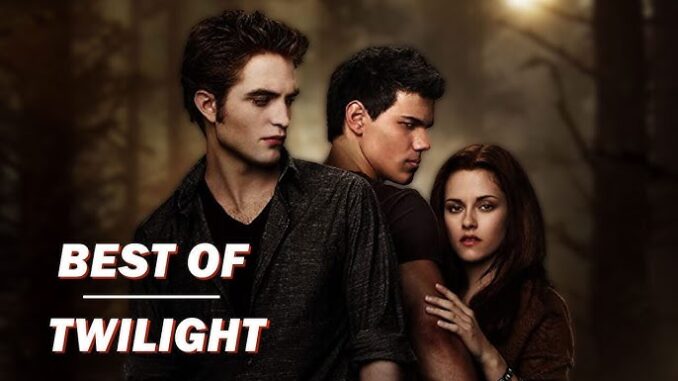
The Echo of Eternity: When Forever Begins Again
A single phrase, whispered from the digital ether, can be a potent spell. “Forever begins again.” In the shadowy realm of cryptic teasers, these three words, coupled with the subtle, unmistakable hum of a particular brand of lore, are not just an announcement; they are a cultural tremor. They hint at a revival of the Twilight franchise, a phenomenon that once glittered and brooded over the cinematic landscape, and in doing so, they illustrate a profound truth about nostalgia, the cyclical nature of storytelling, and our enduring fascination with the eternal.
The weight of “Forever” in this phrase is immense. For a generation, Twilight was more than a series of books and films; it was an era. It was the rain-slicked streets of Forks, the hushed intensity of forbidden love, the electric current of first kisses, and the agonizing choice between the warmth of a werewolf and the cold, sparkling allure of a vampire. “Forever” evokes the core promise of the franchise itself: an immortal love, an unyielding loyalty, a destiny intertwined beyond the limits of human lifespan. To hear this word again, attached to Twilight, is to feel a pang of recognition, a shiver of memory. It calls forth the “Team Edward” vs. “Team Jacob” debates, the collective sigh over Edward’s brooding intensity, Bella’s often-criticized but undeniably compelling agency in her own love story. This “Forever” isn’t just about an indefinite future; it’s about a concrete, cherished past, a cultural moment enshrined in the collective consciousness. It’s the echo of a romance that, for millions, felt eternal.
But it is the conjunction of “begins again” that truly ignites the imagination and illustrates the strategic genius of such a teaser. “Begins again” implies not just a continuation, but a fresh start, a reinterpretation, a phoenix from cinematic ashes. It acknowledges the passage of time since the original saga concluded, the evolution of storytelling, and perhaps, the critical reassessment of elements that, while beloved, haven’t aged perfectly. What does “begins again” truly signify? A reboot that reimagines the foundational mythos for a new generation? A prequel exploring the ancient histories of the Volturi or the early days of Carlisle Cullen? A sequel that pushes Bella, Edward, and Renesmee into unforeseen challenges, or perhaps follows other characters within the richly detailed world Stephenie Meyer crafted?
This cryptic promise illustrates the very mechanism of pop culture revival. It isn’t merely a direct replay; it’s an opportunity to re-engage with beloved archetypes through a contemporary lens. The “begins again” suggests a chance to smooth over perceived rough edges, to deepen character motivations, or to explore new narrative avenues that were untouched in the original run. It’s a delicate tightrope walk between honoring the nostalgic reverence of the established fanbase and capturing the curiosity of a new audience unfamiliar with the original phenomenon. The phrase perfectly encapsulates this dual ambition: respecting the enduring legacy (“Forever”) while embracing the potential for renovation and fresh discovery (“begins again”).
The very nature of this “cryptic teaser” is an illustration in itself. It is a whispered secret, a half-glimpsed shadow that invites speculation, debate, and fervent anticipation. It does not provide answers; it provides a question, a hook that snags dormant passion. Social media becomes a crucible of theories, fan art, and impassioned pleas. The lack of concrete details forces the audience to engage, to project their own hopes and fears onto the void. This strategic ambiguity ensures that the conversation begins long before any official details are unveiled, maximizing the impact of the eventual announcement. It’s a masterclass in marketing, turning absence into presence, silence into a roar of collective excitement.
“Forever begins again” is more than just a marketing slogan; it is a distillation of the very essence of Twilight itself – a world where eternal life clashes with unending desire, where every end is merely a new beginning. It illustrates our collective human yearning for stories that transcend time, for narratives that offer both comfort in their familiarity and thrill in their reinterpretation. As the phrase hangs in the air, charged with possibility, it reminds us that true cultural phenomena, much like the vampires they depict, never truly die. They merely go dormant, waiting for the perfect moment to stir once more, to glimmer in the sun, and to beckon us back into their endlessly fascinating embrace. For in the realm of powerful stories, forever truly does begin again, and again, and again.
